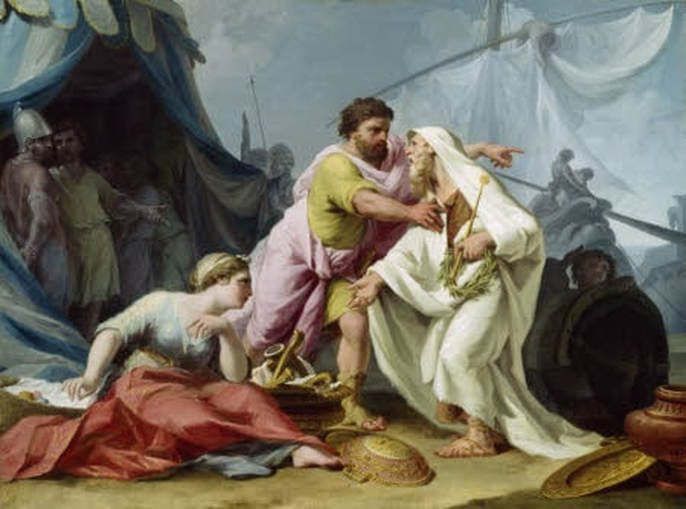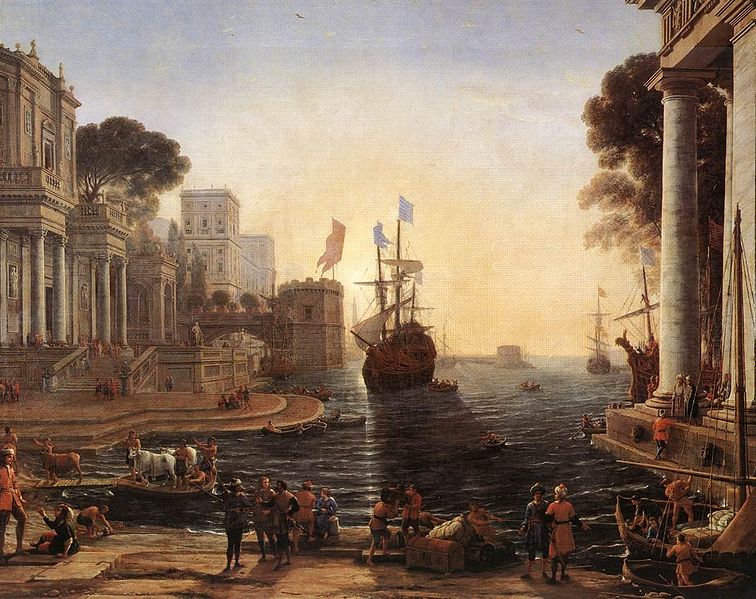CHRYSEIS IN GREEK MYTHOLOGY
Chryseis is one of the female characters who appears during the events of the Trojan War in Greek mythology. Sometimes called a Trojan Woman, Chryseis would become a prize of Agamemnon, the Achaean leader, but subsequent events would cause a divide amongst the Greeks.
Who is Chryseis?
The name of Chryseis is simply said to mean the “Chryses' daughter”, and that was exactly who Chryseis was said to be, the beautiful daughter of a Trojan priest of Apollo, called Chryses.
Chryseis would be resident of the city of Thebe, a city of east of Mount Ida, and it was in this city that Chryses paid homage to Apollo. The city of Thebe would be ruled by King Eetion, the father of Andromache, and Thebe was thus an ally of Troy.
Chryseis would be resident of the city of Thebe, a city of east of Mount Ida, and it was in this city that Chryses paid homage to Apollo. The city of Thebe would be ruled by King Eetion, the father of Andromache, and Thebe was thus an ally of Troy.
Chryseis Captured
|
In the tenth year of the Trojan War, the city was taken by the Achaean forces, and Chryseis would become a war prize of the Achaeans, and the beauty of Chryseis was such that Agamemnon decided that she should be his prize. Agamemnon decided that she was to be his concubine.
Chryses, Chryseis' father, would come the Achaean camp to ransom his daughter, and blessing the Achaean army, Chryses spoke eloquently to retrieve his daughter. |
|
Agamemnon though was completely taken by the beauty of Chryseis, and so refused the generous ransom, and even when Chryses begged, Agamemnon refused to yield, and even threatened Chryseis' father.
Chryseis ReleasedThus, Chryses left the Achaean camp alone, but Chryses then called upon Apollo to avenge him, and of course, Apollo listed to the prayers of his priest.
Thus, Apollo, in the darkness of night, came through the Achaean camp, and unleashing his arrows, brought down a plague upon the Achaeans, and the army was thus decimated by disease. Agamemnon would call upon Calchas, the Achaean seer, to explain the plague ravaging his army, and of course Calchas revealed that the plague would not lift until Chryseis was returned to her father. This of course was not what Agamemnon wished to hear, and Agamemnon called Calchas “a prophet of evil”, but nevertheless Agamemnon was forced to heed the words of his seer, and Agamemnon agreed finally to return Chryseis. There was though a proviso, that Agamemnon would need a prize equal to Chryseis. |
|
Chryseis Divides the Achaeans
There was one such prize already in the Achaean hands, for Achilles had taken the beautiful Briseis as his own prize; and so even as Odysseus was returning Chryseis to her father, when were being sent to take Briseis from Achilles.
Such an act was unworthy of Agamemnon, and an indignant Achilles would refuse to take to the battlefield again, with devastating impact upon the fortunes of the Achaeans.
Such an act was unworthy of Agamemnon, and an indignant Achilles would refuse to take to the battlefield again, with devastating impact upon the fortunes of the Achaeans.
A Son for Chryseis
Although not talked of in the Iliad, later writers tell of Chryseis being returned to her father whilst already pregnant by Agamemnon. Chryseis was thus said to have given birth to a son called Chryses, named for his grandfather, and it was the son of Chryseis who was encountered by Orestes and Iphigenia in Tauris. Though, nothing is said of Chryseis after her return to her father.
|
|
Colin Quartermain - Chryseis - 10th September 2018

